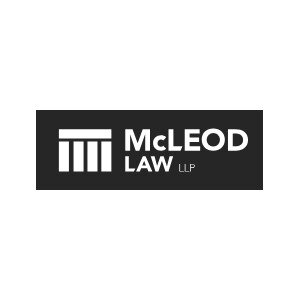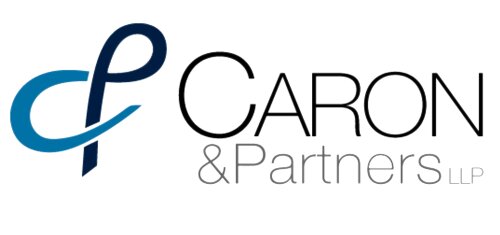Best Nonprofit & Charitable Organizations Lawyers in Calgary
Share your needs with us, get contacted by law firms.
Free. Takes 2 min.
List of the best lawyers in Calgary, Canada
About Nonprofit & Charitable Organizations Law in Calgary, Canada
Nonprofit and charitable organizations in Calgary play a vital role in providing services and support in various sectors such as healthcare, education, arts, and social services. These organizations operate under specific legal frameworks that ensure accountability, transparency, and adherence to the intended charitable purposes. The laws governing nonprofits and charities include federal statutes under the Canada Not-for-profit Corporations Act (NFP Act) and the Income Tax Act, as well as provincial regulations under the Alberta Societies Act. Understanding these laws is crucial for the successful operation and management of such organizations.
Why You May Need a Lawyer
There are several situations where legal advice may be necessary for those involved with nonprofit and charitable organizations:
- Establishing a new nonprofit or charitable organization, including drafting and registering the bylaws and articles of incorporation.
- Navigating the complexities of obtaining and maintaining charitable status with the Canada Revenue Agency (CRA).
- Ensuring compliance with federal and provincial regulations, including annual filings and reporting requirements.
- Addressing governance issues related to a nonprofit's board of directors and ensuring compliance with fiduciary duties.
- Handling employment matters, contracts, and volunteer agreements.
- Resolving disputes or legal challenges that may arise in the course of operation.
Local Laws Overview
In Calgary, nonprofit and charitable organizations must adhere to several key legal requirements:
- Incorporation: Organizations should be incorporated either at a federal level under the Canada Not-for-profit Corporations Act or provincially under the Alberta Societies Act.
- Charitable Status: Charitable organizations must register with the CRA to issue tax receipts for donations. They must also follow rules regarding fundraising and expenditure.
- Compliance: Nonprofits are required to maintain proper governance structures, hold regular board meetings, and submit annual returns.
- Employment and Volunteer Regulations: Organizations must comply with relevant employment laws and ensure volunteers are properly managed and protected.
Frequently Asked Questions
What is the difference between a nonprofit and a charity?
Nonprofit organizations do not earn profits for their owners, but not all can issue tax receipts for donations. Charities are a subset of nonprofits that can issue tax receipts and are registered with the CRA specifically for charitable purposes.
How can I start a nonprofit organization in Calgary?
To start a nonprofit, you'll need to select a name, create a mission statement, draft bylaws, incorporate under the appropriate act, and apply for charitable status if needed.
What are the advantages of obtaining charitable status?
Charitable status allows organizations to issue tax receipts for donations, increasing their ability to raise funds, and often qualifies them for various grants and tax exemptions.
What records need to be maintained by nonprofit organizations?
Organizations must keep accurate financial records, meeting minutes, bylaws, and details of charitable activities, ensuring compliance with legal and regulatory requirements.
Are nonprofits required to pay taxes in Calgary?
Nonprofits are generally exempt from paying income tax on profits related to their organizational purposes, but they may still be required to pay other taxes, such as GST/HST and property taxes, unless exempted.
What are the fiduciary duties of a nonprofit’s board members?
Board members are required to act honestly and in good faith, exercise care, skill, and diligence, and prioritize the organization's best interests when making decisions.
Can nonprofits engage in business activities?
Nonprofits can engage in related business activities to support their mission, but any profits must be reinvested into the organization’s objectives. Charities have stricter rules regarding business activities.
What are the reporting requirements for nonprofits?
Nonprofits must file annual returns with the appropriate governmental bodies, including financial statements and information on board members and charitable activities.
How can a nonprofit maintain compliance with regulations?
Maintaining compliance involves regular audits, ensuring proper filing of documents, staying informed of legal changes, and conducting routine governance checks.
What happens if a nonprofit violates legal requirements?
Violations can result in penalties, loss of charitable status, or even dissolution. Legal advice and regular audits can help prevent such issues.
Additional Resources
The following resources can be helpful for those seeking legal advice or more information about nonprofit and charitable organizations in Calgary:
- Alberta Government's website on Nonprofit & Voluntary Sector services
- Canada Revenue Agency’s guidelines for charities
- Volunteer Alberta for resources on managing volunteer programs
- Imagine Canada for national standards and nonprofit resources
Next Steps
If you require legal assistance in the area of Nonprofit & Charitable Organizations in Calgary, consider the following steps:
- Consult with a lawyer who specializes in nonprofit law to discuss your specific needs and circumstances.
- Gather all relevant organizational documents, including bylaws, financial records, and board resolutions.
- Stay informed about changes in legislation that could impact your organization.
- Consider attending workshops or seminars on nonprofit governance and compliance.
Seeking specialized legal advice ensures that your organization remains compliant and can focus on achieving its mission effectively.
Lawzana helps you find the best lawyers and law firms in Calgary through a curated and pre-screened list of qualified legal professionals. Our platform offers rankings and detailed profiles of attorneys and law firms, allowing you to compare based on practice areas, including Nonprofit & Charitable Organizations, experience, and client feedback.
Each profile includes a description of the firm's areas of practice, client reviews, team members and partners, year of establishment, spoken languages, office locations, contact information, social media presence, and any published articles or resources. Most firms on our platform speak English and are experienced in both local and international legal matters.
Get a quote from top-rated law firms in Calgary, Canada — quickly, securely, and without unnecessary hassle.
Disclaimer:
The information provided on this page is for general informational purposes only and does not constitute legal advice. While we strive to ensure the accuracy and relevance of the content, legal information may change over time, and interpretations of the law can vary. You should always consult with a qualified legal professional for advice specific to your situation.
We disclaim all liability for actions taken or not taken based on the content of this page. If you believe any information is incorrect or outdated, please contact us, and we will review and update it where appropriate.














